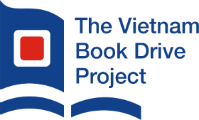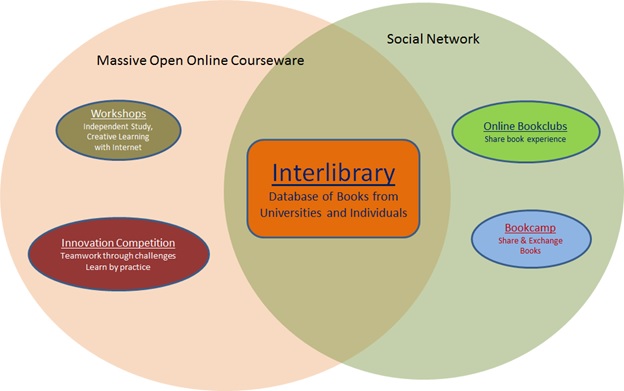VIN Platform
Technical Description of Vietnam Interlibrary Network
Users will use the Facebook app to access books on interlibrary database, share their own books, create online reading clubs, and register offline events. Below are some use cases of the system.
- A user can search for a book on the database. A book can belong to either a university library or an individual. Depending on its location and ownership, he/she can decide the best way to borrow those books (send a message to ask the owner about a book or request a copy from the library). The requested books will be listed on their bookshelves as favorite books.
-
Users can share the titles of the books they own. This reference information will be entered into the database. Other users can search, request, and borrow those titles from the individual book owners.
-
A user can create a reading club centered on certain materials and invite other members to join. They will form a Facebook group to exchange information. The app will utilize all the existing Facebook tools (calendar, message app, group app) to facilitate the group.
-
A user can create or register an offline event such as a workshop or a club meet up.
-
Review and rating information can be extracted from Goodreads/Amazon and other sources on the Internet to recommend good, relevant materials to users.
How to expand the database of VIN
The database of the interlibrary network will be built and managed as a “book banking system”(BBS). The idea is simple. Similar to a real banking system, the BBS borrows books from individual for a fixed yet renewable term (not only library can lend books), then lend them away to others. Those who “deposit” books to BBS get credit that can be used to borrow other books (the credit can be converted to, say, a total number of days to keep books). This credit can also be transferred to other individuals at will. This way everyone benefits. Individuals can “trade” their used books for new ones. The BBS expands their book collections just as commercial banks capitalize on deposited money. Hence they can serve a much larger group of readers.
To support the BBS platform, the book camp could be a full day, offline event where books get deposited and borrowed. Workshops on useful topics are offered at the camp to attract participants. Other activities, such as book clubs could also be formed here. The book camp is supposed to be an intensive event of book exchange and related topics such as book sourcing skills, independent study and online learning skills, etc. The metrics of the book camp are the number of all participants, number of workshop attendance and number of books deposited and borrowed.

